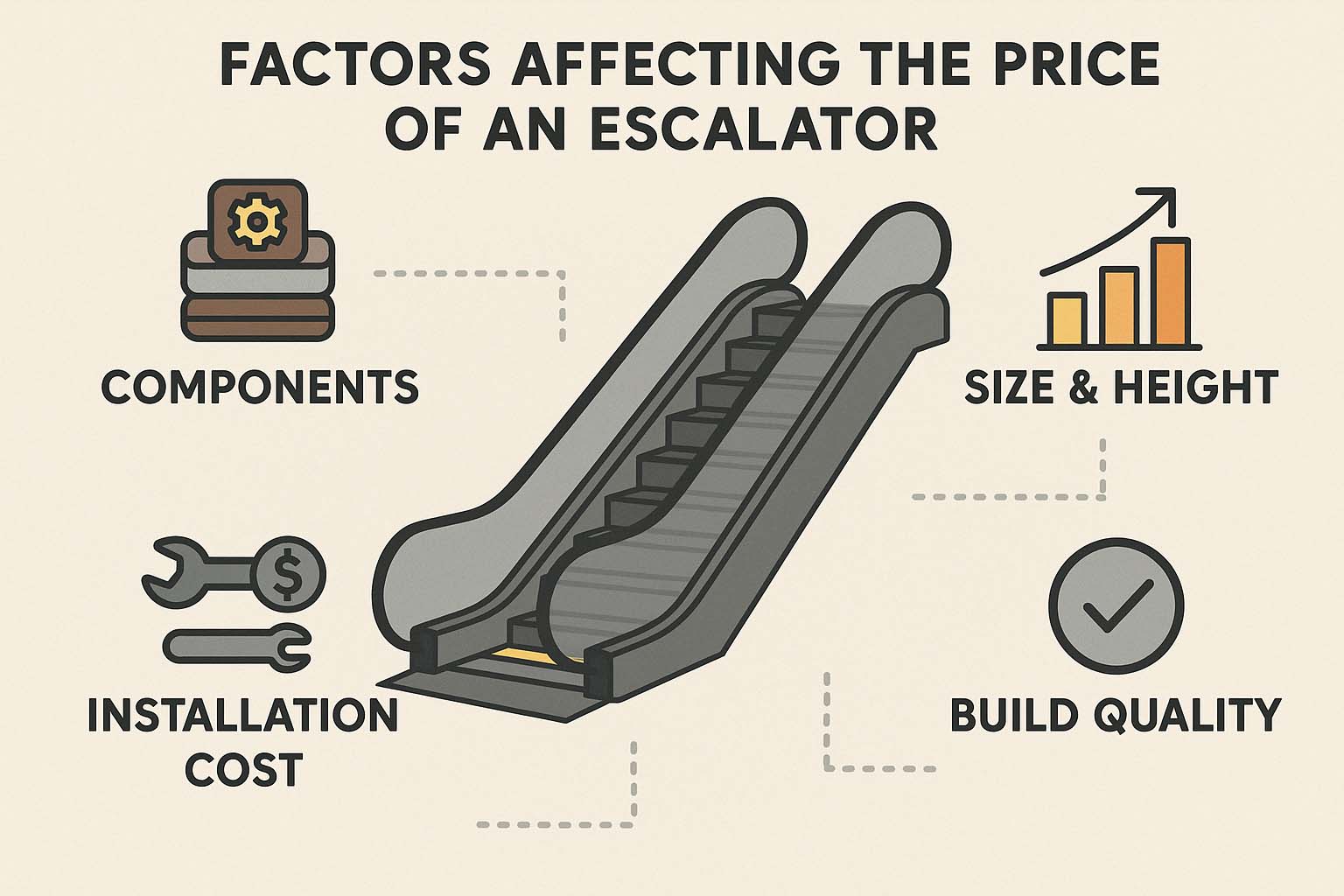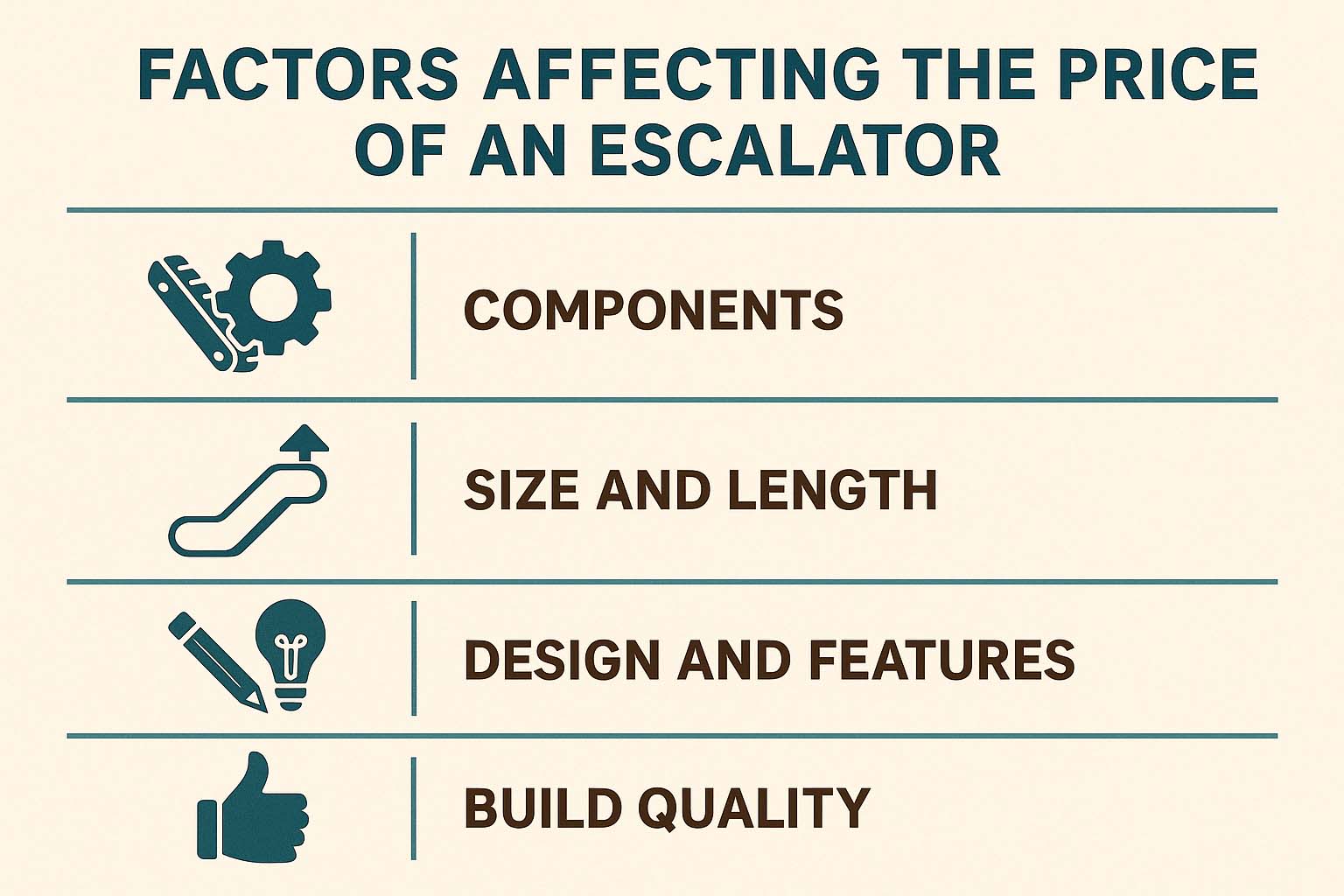
An escalator is more than just a moving staircase—it is an essential part of public and commercial spaces that ensures efficient and safe vertical transportation. However, the escalator price can vary significantly depending on several factors, from the quality of the components to the complexity of installation. Understanding these factors will help buyers make informed decisions and invest in a reliable, long-lasting system.
Every escalator is composed of multiple key escalator parts working together to transport passengers smoothly and safely. The main components include:
Steps: The platform where passengers stand during transit.
Handrail: Provides support and safety for passengers.
Step Chain: Transfers movement from the drive motor to the steps.
Drive Motor: Supplies the escalator’s movement power.
Control System: Manages speed, safety stops, and operational functions.
Safety Brake: Prevents sudden movement in emergency situations.
Sensors and Safety Switches: Detect malfunctions and automatically stop the system when necessary.
At LionLift, all these components are manufactured and installed in compliance with international safety standards to ensure optimal performance and durability.

Several technical elements can directly affect the escalator price:
Dimensions: Larger escalators require more raw materials and components.
Carrying Capacity: Higher-capacity models need stronger motors and reinforced structures.
Speed: High-speed escalators require advanced control systems.
Installation Location: Outdoor installations demand weatherproof and rust-resistant materials.
Safety Standards: Meeting standards like EN115 and ASME may increase costs but guarantees long-term safety and performance.
The brand and country of manufacture play a critical role in determining the escalator price. Well-known brands often use superior materials and advanced technologies, resulting in better performance and a longer service life.
LionLift products stand out for their precision engineering, strict quality control, and adherence to global safety standards. With operations and partnerships in Iran, UAE, Oman, and Iraq, LionLift delivers escalators built to last.
Basic models designed for low-traffic areas are more affordable. However, advanced models with features such as energy-saving systems, custom design, and higher capacity are typically more expensive. Choosing the right model depends on the project’s location, expected traffic, and desired lifespan.
Before purchasing, always evaluate the following:
Safety certifications and compliance with international standards
Use of original, high-quality escalator parts
Availability of after-sales service and spare parts
Comparison of features and prices across brands
Installation by trained professionals
Investing in an escalator is not just about paying for equipment—it’s about ensuring safety, performance, and long-term value. At LionLift, we combine premium materials, advanced engineering, and professional installation to provide escalators that meet the highest international standards.
The article explores the importance of escalator maintenance, overhaul, and general service, explaining how these services can extend the lifespan of the equipment and prevent sudden breakdowns. It also outlines the differences between overhaul and general service, along with safety tips and how to choose the right company for these services.
Explore LionLift’s complete guide to buying and maintaining high-quality escalator parts from trusted global brands.
This comprehensive guide explains what an escalator is, its main components, types, and how it works, along with safety tips and maintenance advice. It also introduces Lion Escalator and Lion Elevator as the official representatives of Lion Lift Europe in Iran, Oman, UAE, and Iraq, ready to supply and service escalators internationally.
Lion Escalator and Lion Elevator, official representative of Lion Lift in Iran, UAE, Oman, and Iraq, provide escalators and parts built to global safety standards.
Explore the complete guide to escalator handrails: standard, fiber-reinforced, and transparent colored types. Learn about safety roles, maintenance steps, replacement costs, and professional tips from LionLift.